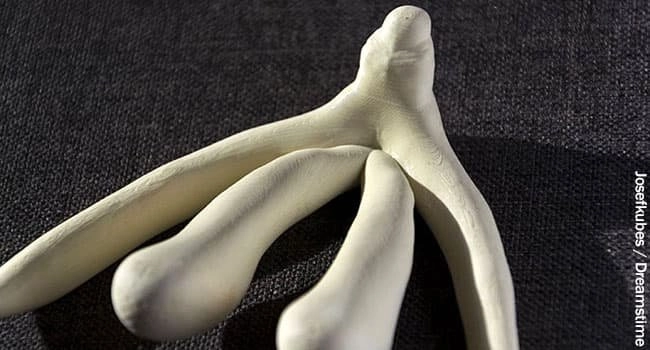The Clitoris Steps Into the Spotlight With New Scientific Discovery
''I ask all my patients about clitoral pain, but often it's the first time they've asked me about it.'' Director.
Krapf is a gynecologist who specializes in female sexual pain affecting the pelvis, vagina and vulva.
Many of the conditions that Crap treats have no external symptoms that look abnormal, but internal, there are damaged or irritated nerves that can lead to hypersensitivity, unwanted agitation, or pain. “Recent research suggests that a herniated disc or even a tear in the spine can lead to clitoral and vulvar symptoms. as you are
Krapf was excited to read about the new discovery.
The clitoris, he said, has over 10,000 nerve fibers, which is 2,000 more than previously reported in 1976, a medical breakthrough for a part of the body often ignored by science. am. Clapp and other doctors hope that attention to the clitoris will generate more interest and education among people in the field. I hope that I can be of help in asking for help.
''Female sexual health has historically been underfunded, especially compared to male sexual health. B. Erectile dysfunction,'' he says Krapf. ''Optimizing vulvar and vaginal health is not only necessary for sexual well-being.''
Blair Peters, M.D., Ph.D., a plastic surgeon who specializes in gender-affirming care, led the study, which was presented at the North American Society of Sexual Medicine in October. Peters hopes this new information will help reduce the stigma that the clitoris doesn't deserve treatment like other organs in the body.
A person's physical and mental health can suffer if the clitoris is not functioning properly. Paying attention to clitoral discomfort and seeing a doctor can help identify and prevent urinary tract and vaginal infections.
''The fact that it took until 2022 for anyone to do this work speaks to how little attention the clitoris has received,'' says Peters, an assistant professor of surgery at the Oregon Health and Science College of Medicine in Portland, Oregon. says. What's inside?
Peters and his colleagues completed the study by collecting clitoral nerve tissue from seven adult transgender men who underwent sex-confirming genital surgery. , so the researchers were able to count the nerve fibers.
According to Peters, the discovery is significant because many surgeries are performed in the groin, including hip replacements, birth episiotomy, and pelvic mesh surgery, and the renewed attention to the clitoris is Helps healthcare workers know where nerves are to avoid injury. prevented.
''If you don't always understand where the nerves are, you risk damaging them,'' he says.
Peters says the new findings will help develop new surgical techniques for nerve repair and provide insights into gender-adapted phalloplasty, a surgical construction of the penis often for transmasculine people. I hope to
ownership of body parts
If you have heart problems, consult a cardiologist. Brain matter, neuroscientist. But when it comes to the clitoris, no doctor specializes in genitals.
Urologists, gynecologists, plastic surgeons, and sex therapists all deal with potential problems that can occur with the clitoris and surrounding body parts. But there are very few specialists like Krapp.
In 2005 Australian urologist Helen O'Connell discovered that the clitoris is filled with erectile and non-erectile tissue. And it wasn't until the early 2000s that researchers began to take a serious look at the clitoral anatomy and how it works.
A 2018 study showed that if more doctors examined the clitoris, they might be able to spot problems such as adhesions and infections in the area, most of which could be treated without surgery.
a part of the body made for pleasure
Randy Levinson, a sex, marriage and family therapist in Los Angeles, treats patients who experience decreased clitoral sensation or pain during sex. Many have recently given birth or are going through menopause. Women often feel embarrassed when they can't orgasm or have a dull clitoris, but they avoid seeking medical advice, she says. For some of her patients, it may help normalize the debate about female pleasure and the vast anatomy that underpins it.
''The more common it becomes to talk about and explore female pleasure, the less embarrassed women are to ask for help when they're not experiencing it,'' says Levinson. “I have many clients who feel pain, discomfort, no pleasure during sex after pregnancy, and worry that something is wrong.”
14 Jan 2023







